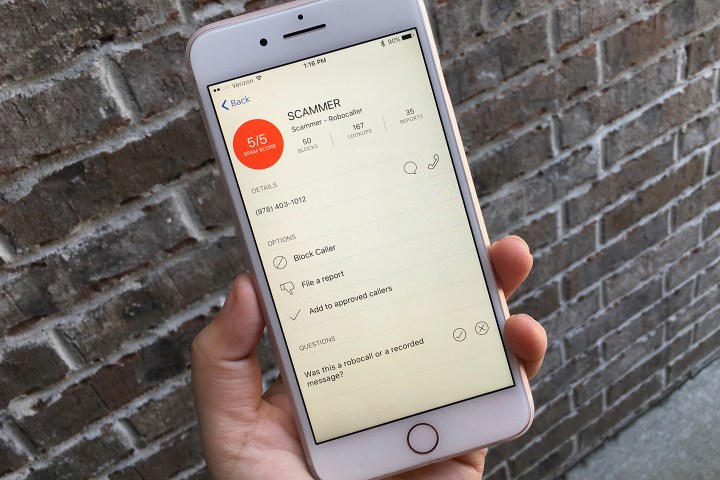
That’s a mouthful, but FONES, at its core, makes it easier for carriers to protect subscribers from malicious callers. On the consumer side of the equation, it lets the subscribers of those carriers block any number from any device.
FONES filters numbers intelligently by tapping technologies like anonymous aggregation and network traffic analysis. And it analyzes billions of events in real time.
“This year, consumers will unnecessarily receive over 9 billion calls from known scammers and another 50 billion nuisance calls,” Jeff Stalnaker, president of First Orion, said. “Carriers can now prevent these unwanted calls from ever reaching their customers. FONES provides the foundation for a comprehensive solution for the protection that consumers deserve, with flexibility to meet carrier requirements and the ability to engage with First Orion in an efficient and easy way.”
The debut of FONES come at a time when fraudulent calls are on the rise. According to the FTC, robocalls cost phone customers $350 million annually. In response, the federal government has imposed more than $1.2 billion in fines on telemarketers. The Federal Communications Commission authorized telecommunications companies to block fraud and spam calls last year, and in 2013 hosted a contest to encourage private industry to come up with ways to stop robocalls.
Telecoms have started to do their part, too. Time Warner Cable makes it easy for its customers to sign up for Nomorobo, a service that works on internet-based phone lines to block robocalls. In September, Sprint expanded a partnership with Cequint to develop “enhanced caller ID solutions” that would be used to prevent spam calls from reaching customers. And in August, the four major carriers in the United States joined forces with Apple, Comcast, Ericsson, Google, Microsoft, Nokia, Qualcomm, Samsung, and others to establish a “robocall strike force.”
Editors' Recommendations
- I’ve used an iPhone for 14 years. The Pixel Fold made me want to stop
- How to ignore robocalls on your iPhone
- Old phones will stop working with AT&T and T-Mobile. Here’s what to do about it
- Cell phone carriers now have the power to stop robocalls. When will they use it?



